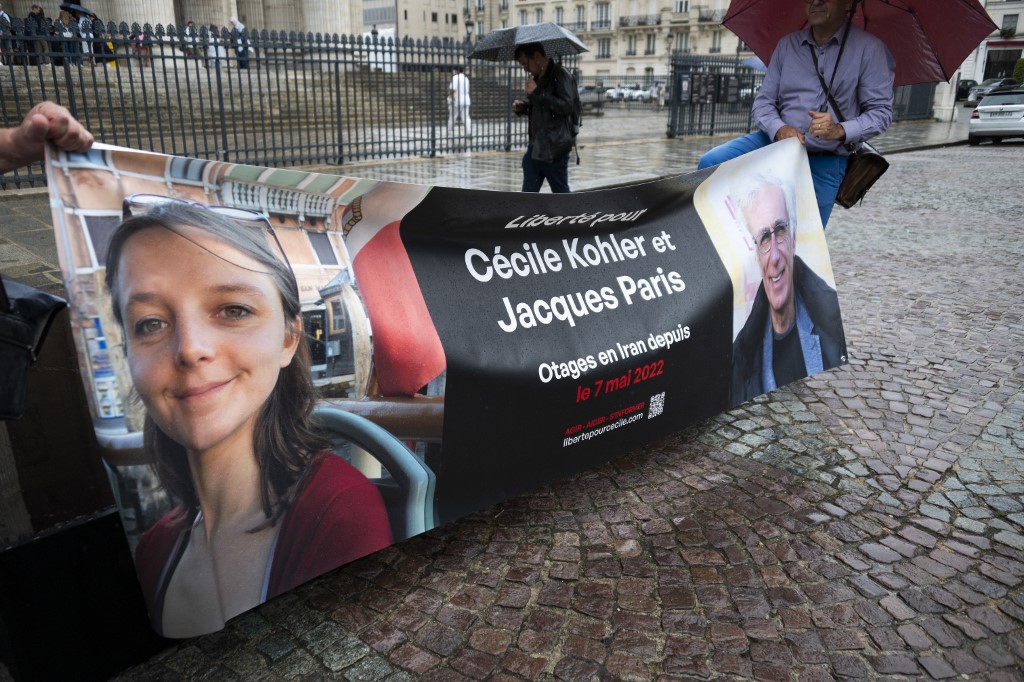
France May Have Been Targeted in Iran's Secret War in Europe
In recent months, French intelligence services have been paying increased attention to violent operations and influence attempts carried out abroad by the Iranian regime. The backdrop to this rising tension is a series of airstrikes at the end of June by the United States and Israel, targeting Iran’s nuclear and scientific facilities. This military pressure has significantly undermined Tehran’s position and intensified the regime’s warfare strategies, including cyber warfare and information influence operations.
According to French authorities, the threat extends beyond traditional terrorism. Iran is also active on the digital front, where it uses targeted campaigns to destabilise French public opinion, escalate social tensions, and spread its own narratives. Under French law, such activities may constitute foreign influence operations, which pose a serious national security risk, Le Monde reported.
One of the most widely reported cases was the arrest of a 39-year-old Iranian woman, Mahdieh Esfandiari, taken into custody by French authorities in early March. Esfandiari had officially been studying since 2018 and later worked as a translator in the Lyon region. She was apprehended as she was preparing to return to Iran.
Esfandiari is accused—alongside two French nationals—of running an organised cell for years, distributing propaganda on social media. According to French judicial authorities, some of the material meets the legal definition of „apologia” (justification of violent acts) and „incitement to terrorism online”.
„The Axis of Resistance”
At the heart of the investigation is a Telegram channel called “The Axis of Resistance”. The name is no coincidence: Iran uses the term to refer to its sphere of influence in the Middle East, which includes Hezbollah in Lebanon, Hamas in Gaza, and the Houthis in Yemen. Under the guise of defending the Palestinian cause, the channel broadcast radical messages and open propaganda, often featuring anti-Semitic and anti-Israeli rhetoric.
French authorities began investigating in October 2023, shortly after Hamas’s 7 October 2023 attack, which brought a new dimension to the threat of Iranian influence and radicalisation in Western Europe. Investigators found that the channel may have operated with Iranian funding.
Among the suspects is Maurizio B., a 42-year-old man described by authorities as being close to antisemitic and far-right circles. He was arrested in November 2024. At his home, investigators found Iranian propaganda publications, an alarm pistol, and a copy of Hitler’s Mein Kampf. Maurizio B. is not only Esfandiari’s partner but may also have ties to Alain Soral, leader of the Egalite & Reconciliation (E&R) movement, who has long-standing links to Iran.
Between 2020 and 2024, the E&R website broadcast around fifteen programmes also titled „The Axis of Resistance”, in which Maurizio B. is suspected of having played an active role. Soral and essayist Youssef Hindi were also questioned in connection with the case, although no charges have been filed against Hindi.
Those involved deny the allegations, claiming their activities fall under freedom of expression.
However, the case highlights a serious dilemma: where is the boundary between free speech and foreign influence operations?
According to Le Monde, the legal proceedings are likely to be lengthy, and conditional release for the suspects is not out of the question. In the meantime, French intelligence is increasingly focusing on hybrid threats operating in the grey zone between physical violence and digital propaganda.
French Hostages in Iran
Tensions between Iran and France are further exacerbated by a diplomatic conflict over French nationals being held hostage by Iran. Around twenty foreign nationals are currently being held captive in Iran on various grounds, including four French citizens. Iran is fighting one of the most delicate fronts in its conflict with the West through human lives. The Israel-Iran war between 13 and 25 June—referred to as the “twelve-day war”— severely shook the Tehran regime. In the wake of its military defeats, the regime adopted an even harsher stance toward foreigners. France is particularly affected: several of its nationals are being held captive, including Cecile Kohler and Jacques Paris, who have been imprisoned in Iran for three years.
« Dans le cas des otages français en Iran – Jacques Paris, Cécile Kohler et désormais le jeune Lennart Monterlos arrêté en juin – l’Iran adresse á la France un message menaçant, car tous ont été arrêtés uniquement en raison de leur nationalité.» L’édito de @TamTranHuy.#SensPublic pic.twitter.com/84dH41iLmE
— Public Sénat (@publicsenat) July 16, 2025
During the June war, the Iranian parliament passed a new law that broadly criminalises actions such as sending photos to foreign media. These acts are now considered espionage on behalf of „hostile countries”.
The law is retroactive and can be applied to any foreigner previously arrested. In recent weeks, the Revolutionary Guard has announced the detention of several European nationals, without providing further details.

